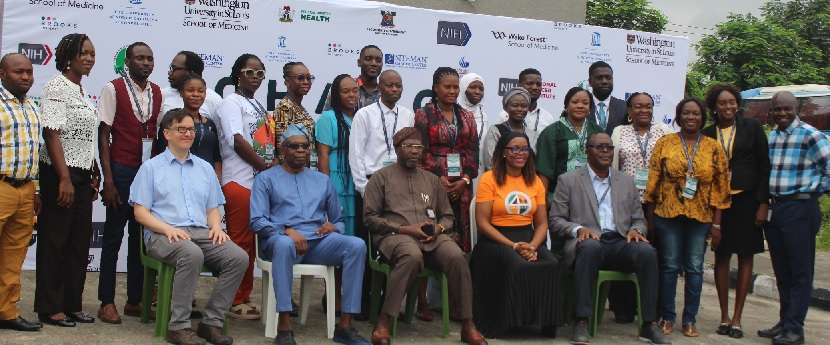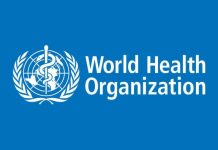
Towards reducing the high burden of cancer in Nigeria, which has the second highest cases of 11 per cent and deaths of 12 per cent in Africa, the government of the United States of America in collaboration with the Federal Government of Nigeria have inaugurated a Cancer Control Centre for Research on Implementation Science and Equity (C3-RISE), at the Nigerian Institute of Medical Research (NIMR), Yaba, Lagos.
Declaring the centre opened on Tuesday, at the maiden training for young investigators, tagged” Change challenge 2024”, Director General, NIMR, Prof. Babatunde Lawal Salako, said beyond serving as a training hub for young scientists, the academy will leverage effective implementation of evidence-based interventions in mitigating cervical cancer mortality by 90 per cent and liver cancer death by 65 per cent.
He highlighted existing vaccines and the conditions they mitigate, saying the human papillomavirus (HPV) vaccination prevents cervical, oral, penile, vaginal, and vulvar cancers; while the hepatitis B (HBV) vaccine prevents liver cancer. As potent as these vaccines are, there are issues in uptake, which has rendered the preventive system incomplete.
To close this research-to-practice gap, Salako revealed that the Federal Government of Nigeria decided to partner with the United States of America to establish the US-Nigerian Cancer Control Centre for Research on Implementation Science and Equity (C3-RISE). Funded by the National Institutes of Health, National Cancer Institute with support from the Siteman Cancer Centre and the Institute of Public Health at the Washington University in Saint Louis, Missouri, USA, it aims use participatory strategies and training to improve uptake of these relevant vaccines.
“We are using participatory implementation science strategies (i.e. crowdsourcing open calls and our innovation bootcamp, which we just concluded) to expand uptake of HPV and HBV vaccines for cancer prevention; and (2) It will serve as a hub for equity and capacity building in implementation science to advance the understanding of intervention uptake and sustainment of evidence-based interventions to prevent cancer.
“The establishment of the US-Nigerian Cancer Control Centre for Research on Implementation Science and Equity represents a pivotal step towards realising this vision. By fostering research, collaboration, and the translation of scientific knowledge into impactful interventions, we aim to drive progress in cancer control and equity in Nigeria and beyond.
“The centre aligns with the vision and strategic objectives of the Institute by enhancing research and development capacity through collaboration with academic institutions nationally and internationally”, the DG stated.
He appreciated Professors Juliet Iwelunmor of Washington University, St. Louis, and Prof. Joe Tucker of the University of North Carolina at Chapel Hill, USA, for their valuable support and partnership in this initiative, adding that their relationship has flourished over the past six years, culminating in this recent addition to their partnership portfolio.
Speaking at the media launch of the cancer academy, Prof. Iwelunmor, principal investigator of the project, expressed her delight in the establishment of the institution as a stop gap to liver and cervical cancers in Nigeria. It will foster the mentoring of younger researchers in the development of homegrown solutions to the cancers of concern. Having lost a sister-in-law to cervical cancer some years back, she emphasised that no woman should die of the condition any longer as there abound evidence-based findings on how HPV vaccination has prevented the risk of cervical cancer in women.
“We don’t need to have any more women dying in Nigeria from cervical cancer. So it’s a great privilege that her death to me is not in vain, that we are here training a new generation of researchers that can then baton, carry on the hard work of what it’s like to ensure that no other woman would die of cervical cancer in Nigeria.
“At the end of the project which will span five years, we will like to see Nigerian homegrown solutions that are led by Nigerians for Nigerians, making an impact so that no woman would ever die from cervical cancer, no man or woman would ever die from liver cancer”, she stated.
Explaining the modalities they deployed in selecting participants for the first co-hot of their training, she said they sent out calls for people to come up with ideas on how to end liver and cervical cancers in the country. So, candidates from Lead City University; University of Nigeria Nnsuka; Ogun State University and other institutions scaled through with their applications and they made up the first set of trainees for the 5-year project.
Prof. Oliver Ezechi, director of research, NIMR and co-investigator of the project, buttressed on the mission of the cancer centre in Nigeria, saying it is crucial in building the capacity of young scientists in conducting scientific research which can be translated into informed policy for national development.
Research science, according to him, is not something that is very common. It is a kind of research in which you want people to implement and then also look at those barriers and those who are the facilitators.
“Essentially, what you need to control human papillomavirus is already known. It is the vaccination and screening. For hepatitis B, it is also known, the vaccination. But why is it not being implemented in the country? So we want to train researchers who are able to conduct research and be able to identify those issues, why the uptake is low, why people are not taking them.
“And then, that will now inform policy. As we all are aware of what we have been doing in terms of human papillomavirus, especially campaign. There is a lot of negative campaigns and research to be able to pick that up, even before.
“So we have a crop of people from Western Nigeria, from FMC Abeokuta, Lead City University, University of Nigeria, Nsukka, and others. And then, with our partners from the U.S., we are now training them to be able to conduct human science research that addresses equity issues, that they are able to identify issues hindering the uptake of this prevention”.
In his contribution, Prof. Joe Tucker, a co-investigator on the project, emphasised the crucial role of the cancer academy in reducing the prevalence of cervical and liver cancers in Nigeria, through the scaling up of HPV and HBV vaccines uptake.










